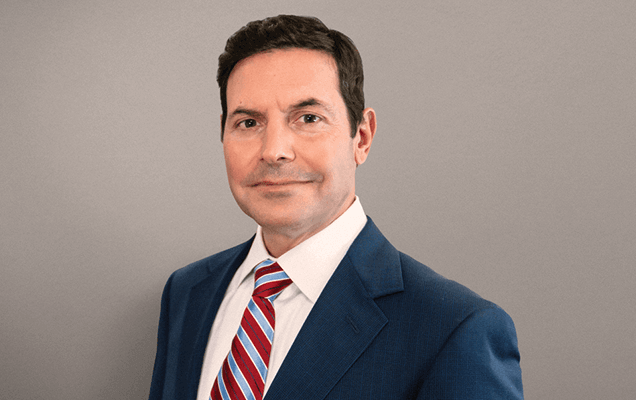Self-education is an important part of preparing for your upcoming burr hole drainage surgery. You will be more informed, giving you a better understanding of the things happening along the way and allowing you to have confidence in your treatment choices. As a result, you will find yourself more relaxed and at ease, so you can focus your energy on the important things during this time, like your recovery.
To help you in the learning process, the following information will give you an overview of your upcoming burr hole drainage surgery, when it might be indicated and what to expect during and following your procedure. After reading through the material, you will have an enhanced understanding of the treatment, giving you a basis to carry on the discussion with your personal doctor. Though he or she is the best person to discuss your specific treatment, having a general understanding is a great way to begin that conversation.
About Burr Hole Drainage Surgery
As the name implies, the treatment goal of burr hole drainage surgery is to allow something to drain that has built up within the skull. This might be blood that has built up slowly over time, such as with a chronic subdural hematoma, or it could be a more emergent situation that requires immediate treatment to prevent damage or even death. Some of the situations that might require burr hole drainage surgery include:
- Chronic or subacute subdural hematoma
- Hydrocephalus – Requires burr hole through which a catheter is then placed
- Certain types of cancer – May require a burr hole to perform a needle biopsy
- Brain bleed – Requires a catheter to be placed through burr hole to remove the blood
The procedure information below refers specifically to patient cases involving chronic or subacute subdural hematomas.
Burr Hole Drainage Surgery: The Procedure
Regardless of your condition, your burr hole drainage surgery will take place in a hospital setting while you are under general anesthesia. Your surgery will typically be performed by a neurosurgeon. However, there may be emergency cases where another type of doctor must perform the procedure. Once you are asleep and comfortable, someone may trim your hair in the treatment area and the procedure will begin.
During burr hole surgery, the surgeon will use a surgical handpiece to drill small holes in the skull in the area requiring drainage. He or she will keep the holes as small and as few as possible. The surgeon will then create an opening in the dura, the membranous covering of the brain, to drain the built-up hematoma. The surgeon may need to place a temporary drain until all of the fluid has been removed. At the end of your burr hole drainage surgery, the incision will be closed with sutures or staples.
We are more than surgeons, we are your support system.
Recovery Following Burr Hole Drainage Surgery
Because burr hole drainage surgery can be necessary for a range of conditions, your individual recovery is going to be a very personal process. If you were experiencing symptoms due to a chronic condition, you will likely experience some form of relief immediately. However, the degree of symptom resolution will again depend on your particular condition and circumstances.
Immediately following your burr hole drainage surgery, your care team will monitor your vital signs, such as blood pressure and respiratory rate, while you recover from the general anesthesia. Once you start to stabilize, you will be transferred to your room where you will spend the remainder of your hospital stay. Most patients will spend at least a few days recovering in the hospital. However, some patients will require a much longer hospital stay, such as following a stroke or traumatic brain injury.
After you are released from the hospital, you will begin your recovery at home. Once again, what you experience during this time is going to depend on the condition that necessitated burr hole drainage surgery. That said, most patients can expect to be put on some level of activity restrictions through this time. These can include restrictions on driving, heavy lifting and participating in activities that could lead to head trauma. Your doctor will assess your progress during follow-up visits and will gradually lift restrictions as your body heals.
Your Personal Burr Hole Drainage Surgery Experience
As you can appreciate, the reason for your burr hole drainage surgery may not be the same as the next patient’s. As a result, your surgical experience and recovery will be a personal process depending on your condition and other individual health factors. This is why it is important to discuss your particular case with your personal doctor, who will be able to give you a personalized idea of what to expect regarding your procedure, including activity restrictions and symptom resolution.
If you still have lingering questions about your condition, procedure or recovery, continue the discussion with your doctor at your next appointment. He or she will help ensure you are comfortable with the entire process, from treatment through resolution. This, in turn, can help give you confidence and peace of mind as your treatment date approaches, helping reduce stress and help you rest easier along the way.

About Dr. David Estin
Dr. David Estin is an accomplished neurosurgeon in Central Jersey and is a proud member of Neurosurgeons of New Jersey, practicing out of their West Long Branch office conveniently located on Highway 36 West. Dr. Estin specializes in the treatment of brain tumors and spinal disorders. He has particular expertise in the use of endoscopic techniques to remove pituitary tumors at the base of the brain through the nose. He also has special expertise in robotic spine surgery and artificial disc replacement in the neck. He has vast expertise in Gamma Knife, CyberKnife, and minimally-invasive spine surgeries. With over 20 years of experience, Dr. Estin is recognized as one of the top surgeons in Monmouth County. He's accepting new patients.






